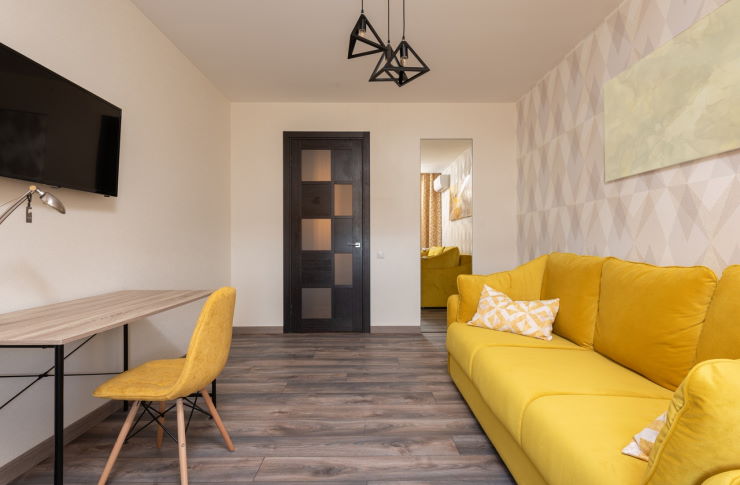Discover Comfortable and Supportive Senior Living Options Tailored to Your Needs
Experience the perfect blend of independence and support in our senior living communities. With diverse housing options tailored to your needs, enjoy engaging social activities and 24/7 professional assistance. Discover a vibrant atmosphere where you can thrive and connect with others! Explore the enriching experiences that await you in our welcoming senior living options

Living Options: Independent and Assisted Living Explained
Senior living encompasses a spectrum of residential options designed to accommodate varying levels of independence and care needs. Independent living serves active older adults who can manage daily activities but desire freedom from home maintenance responsibilities. These communities typically offer private apartments or cottages with full kitchens, providing residents complete autonomy while enjoying community amenities.
Assisted living bridges the gap between independent living and nursing care, offering support with activities of daily living such as medication management, bathing, dressing, and meal preparation. Residents typically live in private or semi-private apartments with emergency call systems, receiving personalized assistance based on individual care plans. This model allows seniors to maintain independence while accessing necessary support services in a residential setting.
Many modern communities offer a continuum of care, allowing residents to transition between independent and assisted living as needs change without relocating to an entirely different facility. This approach provides peace of mind for residents and families, knowing additional support is available when needed within the same familiar community.
Wellness Programs Focus on Fitness and Nutrition
Today’s senior living communities emphasize holistic wellness through comprehensive programming designed to enhance physical, mental, and emotional well-being. Fitness centers equipped with senior-appropriate exercise equipment, heated pools for low-impact aquatic classes, and specialized fitness instruction tailored to older adults form the foundation of physical wellness initiatives.
Nutritional wellness receives equal attention through chef-prepared meals that balance flavor with dietary requirements. Many communities employ registered dietitians who create menus addressing common health concerns like cardiovascular disease, diabetes, and arthritis while ensuring meals remain appetizing and enjoyable. Farm-to-table programs, cooking demonstrations, and nutrition education workshops further support residents’ dietary health.
Cognitive wellness programs include brain fitness activities, educational lectures, art therapy, and technology classes designed to stimulate mental acuity and prevent cognitive decline. These multidimensional wellness approaches recognize that optimal aging requires attention to all aspects of health, creating environments where seniors can thrive rather than simply reside.
Staff Support Provides 24/7 Care Assistance
The hallmark of quality senior living is professional staffing that delivers consistent, compassionate care around the clock. Communities maintain appropriate staff-to-resident ratios based on care levels, with assisted living providing more personnel than independent living arrangements. Care teams typically include nurses, certified nursing assistants, medication technicians, and resident assistants trained in senior care best practices.
Staff members undergo specialized training in age-related conditions including dementia, Parkinson’s disease, diabetes management, and fall prevention. Beyond medical support, staff often develop meaningful relationships with residents, learning individual preferences and histories to provide truly person-centered care. This relational approach transforms care from a series of tasks into genuine human connection.
Emergency response systems further enhance safety, with wearable alert pendants or in-room call buttons ensuring rapid assistance when needed. Regular assessments by care coordinators help monitor changing needs, allowing for adjustments to care plans that maintain optimal support while respecting independence.
Social Activities Feature Daily Events and Engagement
Combating isolation represents a crucial component of senior well-being, making robust activity programming essential in quality communities. Calendar offerings typically include diverse options from educational lectures and book clubs to fitness classes, art workshops, gardening programs, and musical performances. Resident-led interest groups foster deeper connections through shared hobbies and passions.
Intergenerational programs connecting residents with local schools, universities, and community organizations provide meaningful engagement across age groups. Transportation services enable regular outings to cultural venues, restaurants, shopping centers, and natural attractions, maintaining connections to the broader community.
Technology integration through community-wide Wi-Fi, computer labs, and tech support helps residents maintain digital connections with family and friends through video calls and social media. These comprehensive approaches to socialization recognize that meaningful human connection remains vital throughout all life stages, contributing significantly to emotional well-being and quality of life.
Senior Living Costs and Financial Considerations
Senior living costs vary significantly based on location, care level, amenities, and apartment size. Independent living typically ranges from $2,000 to $5,000 monthly, while assisted living averages between $4,000 and $7,000 monthly, with memory care commanding higher rates between $5,000 and $10,000 monthly.
| Living Option | Average Monthly Cost | What’s Typically Included |
|---|---|---|
| Independent Living | $2,000-$5,000 | Housing, utilities, meals, activities, transportation, housekeeping |
| Assisted Living | $4,000-$7,000 | All independent living services plus personal care assistance, medication management |
| Memory Care | $5,000-$10,000 | All assisted living services plus specialized dementia programming and enhanced security |
Prices, rates, or cost estimates mentioned in this article are based on the latest available information but may change over time. Independent research is advised before making financial decisions.
Various payment options exist including long-term care insurance, veterans benefits, life insurance conversions, and home equity. Medicare generally doesn’t cover long-term residential care, while Medicaid may provide assistance for qualified individuals after personal assets are depleted. Financial advisors specializing in elder care can help families navigate these complex decisions and identify appropriate funding sources.
Quick Hits: Fascinating Insights on Senior Living
Modern senior living differs dramatically from outdated nursing home stereotypes. Today’s communities often feature amenities rivaling upscale resorts, including farm-to-table dining, salon services, theater rooms, art studios, and putting greens. Research indicates residents in quality communities often experience improved health outcomes compared to isolated seniors aging at home, with studies showing reduced hospitalization rates and slower cognitive decline.
Technology integration continues advancing rapidly, with communities implementing smart home features, telehealth capabilities, and virtual reality experiences designed specifically for seniors. Person-centered memory care represents another innovation, with specialized environments using evidence-based approaches like reminiscence therapy, multisensory stimulation, and therapeutic gardens to enhance quality of life for those with cognitive impairments.
Finding the right senior living option requires careful consideration of current and anticipated future needs, budget constraints, desired location, and personal preferences. Touring multiple communities, speaking with current residents, reviewing state inspection reports, and consulting with senior living advisors can help families identify the most appropriate setting for their loved one’s unique circumstances.
This article is for informational purposes only and should not be considered medical advice. Please consult a qualified healthcare professional for personalized guidance and treatment.




